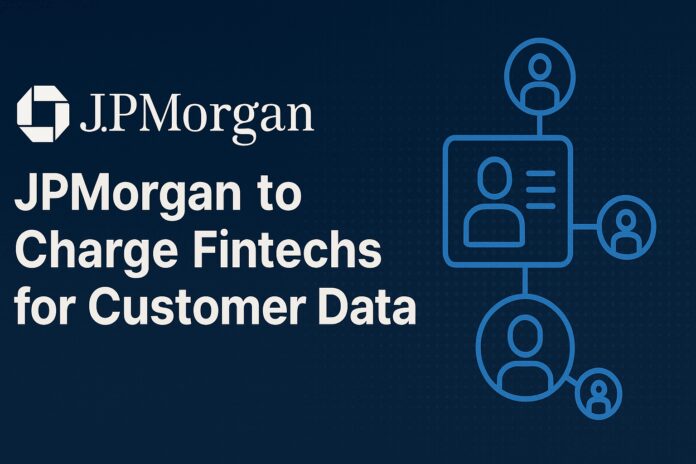In a move that could reshape the economics of open banking in the U.S., JPMorgan Chase has announced it will begin charging fintechs for access to customer data. As reported by Finextra, this decision directly impacts aggregators like Plaid, MX, and Yodlee — companies that connect bank accounts to third-party apps for budgeting, investing, and payments.
While JPMorgan frames the change as a matter of infrastructure cost recovery and security, the broader message is clear: the era of free data access in U.S. banking is over.
What’s Changing, and Why Now?
JPMorgan’s new policy will:
- Impose fees on fintechs that connect via APIs to access Chase customer data
- Primarily target data aggregators that fuel thousands of third-party finance apps
- Come into effect later this year, with specific pricing details still undisclosed
This move comes amid rising costs for banks maintaining real-time data infrastructure, enhanced fraud monitoring, and stricter compliance obligations.
But it also reflects growing tension: Big banks want to reclaim control over the pipes they built.
A Crack in the Open Banking Narrative?
In the U.S., where open banking has evolved voluntarily rather than through strict regulation like PSD2 in Europe, this marks a shift. Fintechs have largely benefited from free access to user-permissioned data, riding on connectivity platforms without direct infrastructure costs.
By introducing paywalls, JPMorgan:
- Is asserting its dominance in data ownership
- Is setting a precedent that data is not a public good — it’s a monetizable asset
- Could inspire other banks to follow suit, particularly as more users opt for third-party finance apps
This could significantly affect the unit economics of fintech services that rely on real-time banking data to function.
Fintechs Face a Strategic Dilemma
For fintechs, the implications are profound:
- Increased costs may erode margins in an already capital-tight environment
- Fintechs may need to prioritize direct bank partnerships or pass costs onto users
- Aggregators might be forced to renegotiate API agreements — potentially losing scale or speed
Ironically, some startups built on “free data” now face the same vendor risk they hoped to eliminate by building outside the traditional banking system.
What This Means for Consumers
While JPMorgan insists that end-user access and control remain intact, the consequences may ultimately hit users:
- Fewer app integrations
- Reduced real-time syncing
- Potential fees or degraded UX in free personal finance tools
The battle for open banking is shifting from ideology to economics. Users may end up stuck in the middle.
Conclusion: Monetizing the Rails of Open Finance
JPMorgan’s decision is a reminder that infrastructure is never free — especially when it’s controlled by the largest financial institutions in the world. As the fintech ecosystem matures, and as banks push back on commoditization, expect the rules of engagement to change.
Fintechs now face a future where scale, cost management, and strategic partnerships — not just innovation — determine survival.




